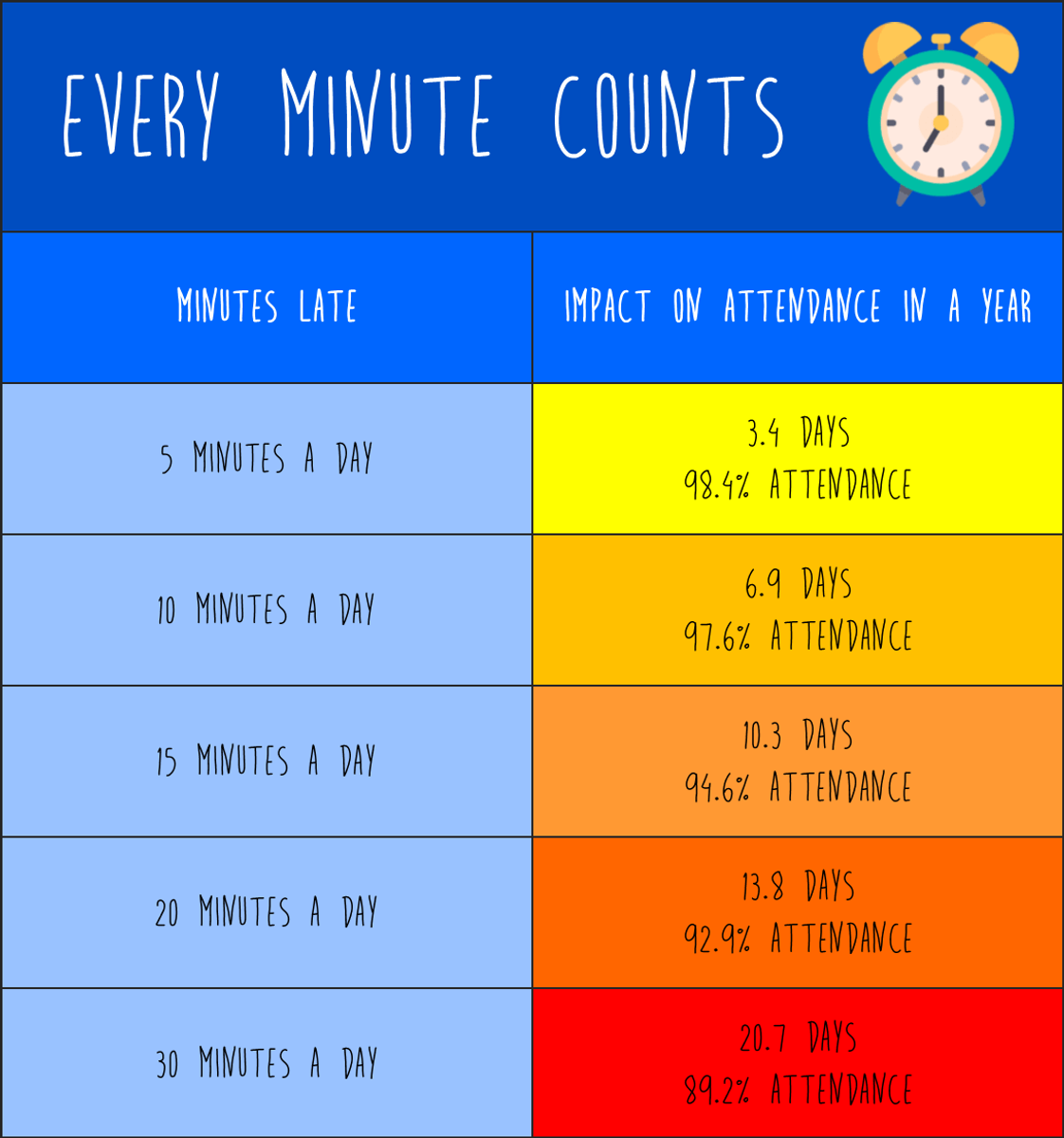VICE PRINCIPAL'S REPORT

As I have mentioned in past newsletters, the number of students arriving late to school this year has been a concern. What’s more worrying is the number of students who are presenting as chronically late for school, with many of these students missing significant chunks of time each week. We all run late sometimes and arriving late to school occasionally won’t cause major disruptions for your child’s learning. Inevitably, children will feel sick or tired some mornings or other situations will prevent them from being on time. Chronic lateness, however, does have an impact on your child’s education.
At East, the bell rings at 8.45 to start school each morning. Once morning administration such as the taking the role is completed, reading workshops begin by 8.50. This means even if students are arriving before 9am, which many are, they have still missed the instructional element of the lesson, which leaves them with a poor understanding of what is required during the lesson and little chance of achieving the learning intention set.
This week members of our School Leadership Team dedicated their meeting time to unpacking and analysing this year’s data around students arriving late to school. Alarmingly, we found that regularly ten percent or more of our students are not making it to school by 8.45. This means that ten percent of our students are missing the instructional element of their literacy lesson. This means ten percent of our students don’t fully understand what is being taught and what is required of them in the lesson. And inevitably, this means that ten percent of our students are struggling to learn the concepts being taught each morning.
Fortunately, families can help prevent tardiness from becoming frequent enough to negatively impact their child's school life. Here are a few tips that may help your morning routine.
- Set out uniforms ahead of time.
- Prepare lunches and pack bags the night before.
- Take away electronic devices after bedtime.
- Have an alarm clock in your child’s bedroom.
- Get up 15 minutes earlier.
- Keep breakfast simple.
- Encourage your child to get ready for school independently.
If you have any questions or would like any support to help your family arrive to school by 8.45, please do not hesitate to contact me at the school. We thank you for your support.
Ben Hawthorn.
LOST MINUTES = LOST LEARNING

